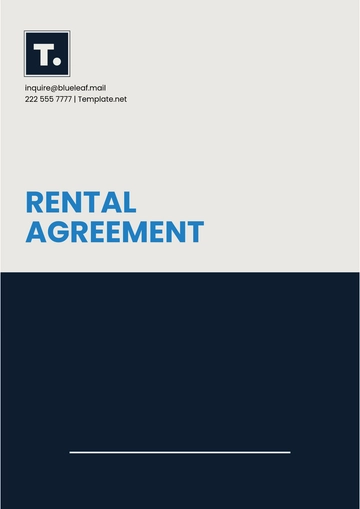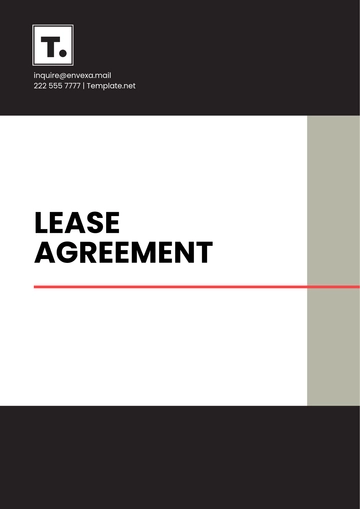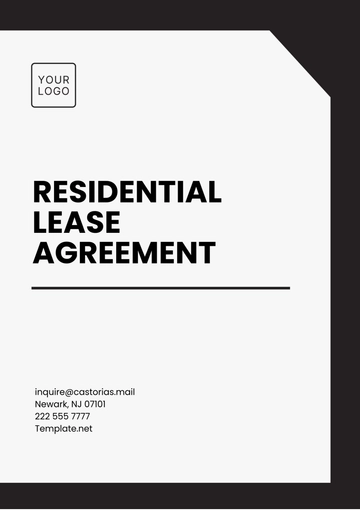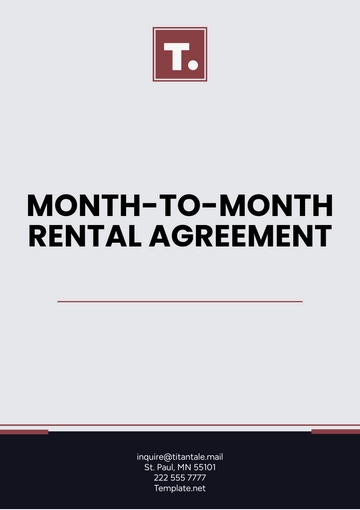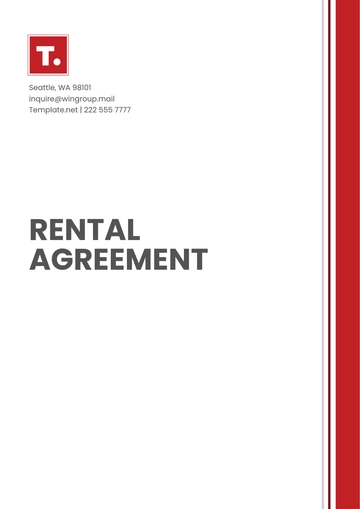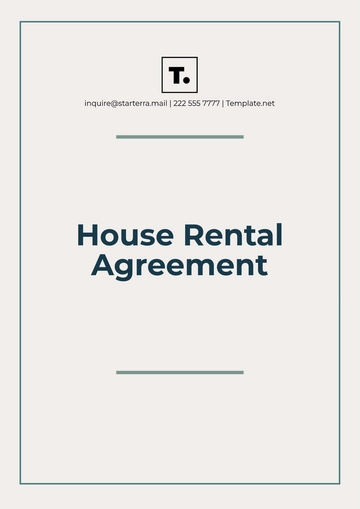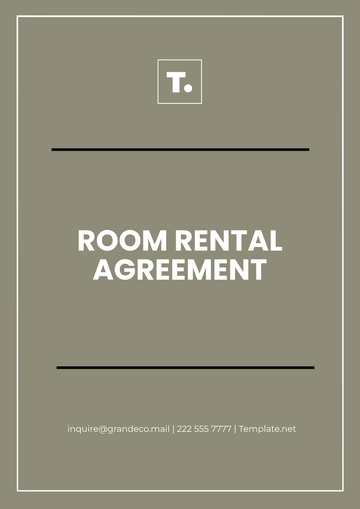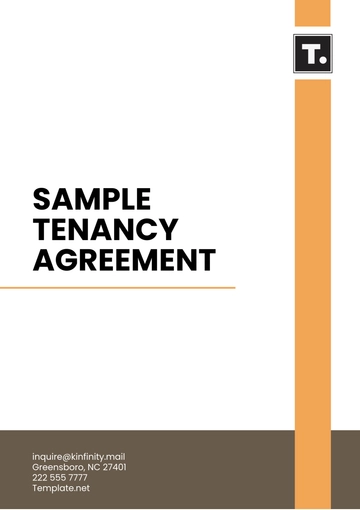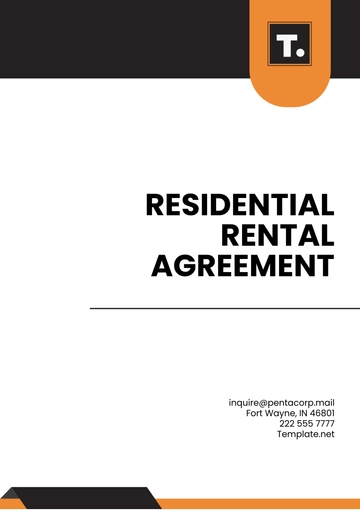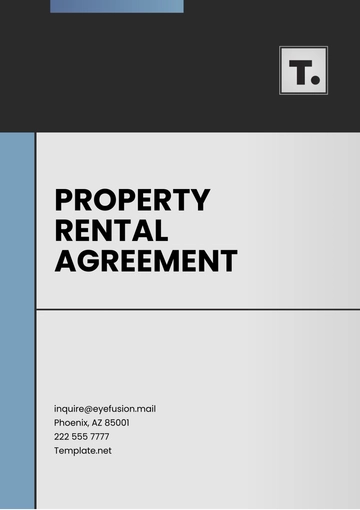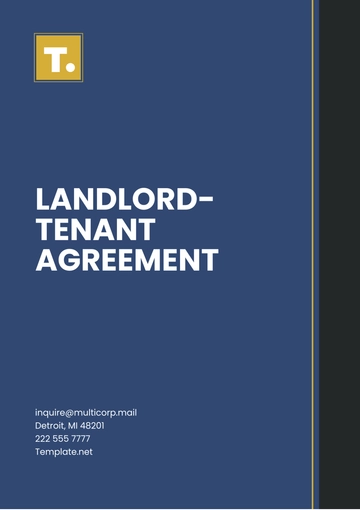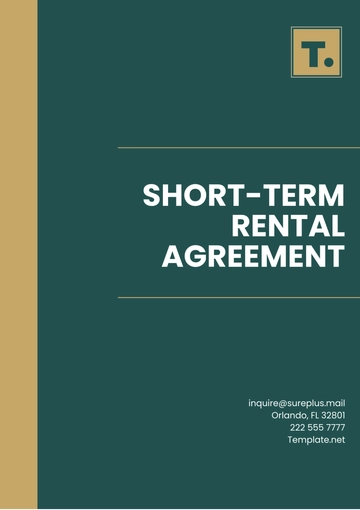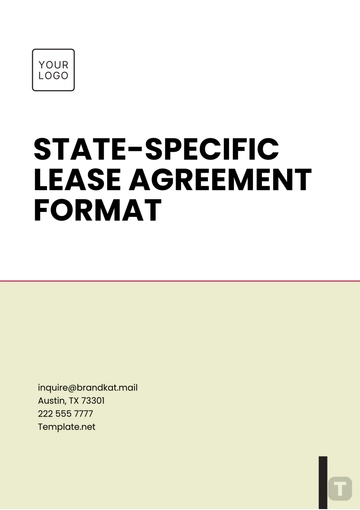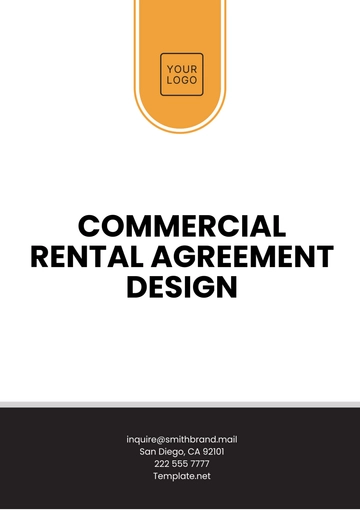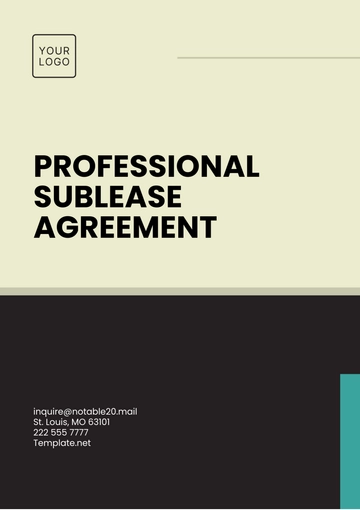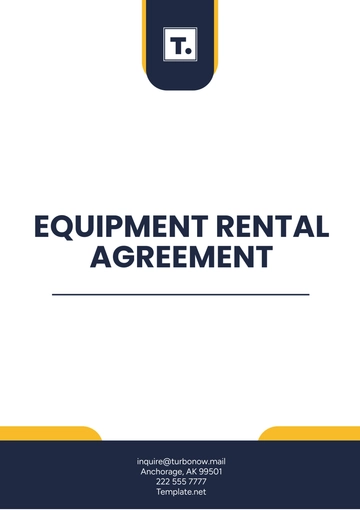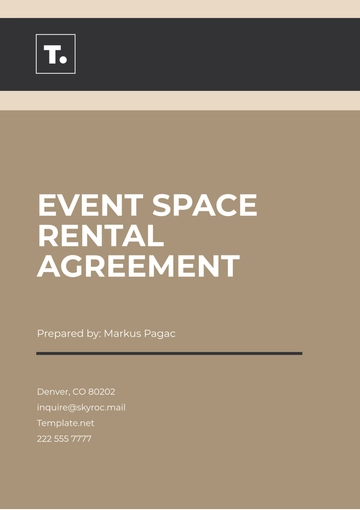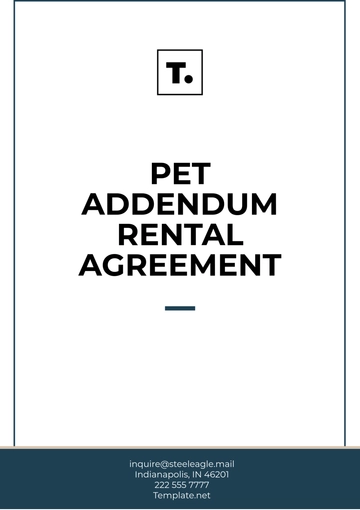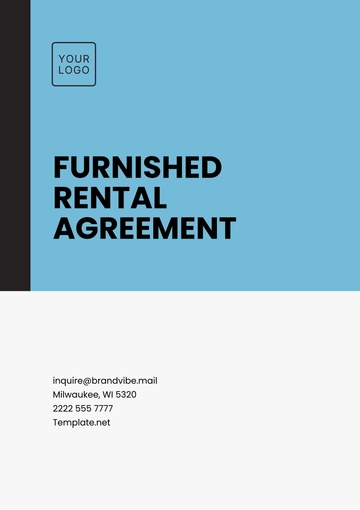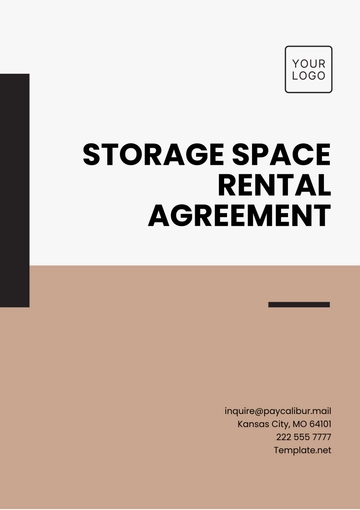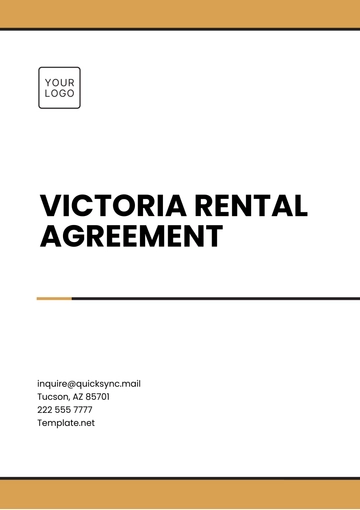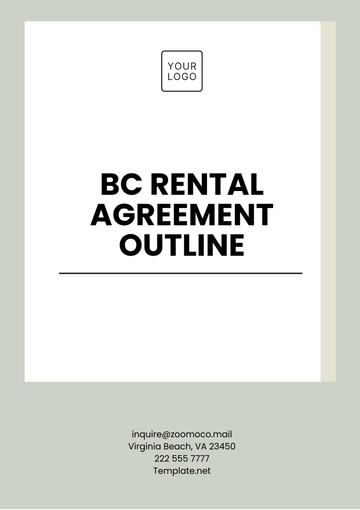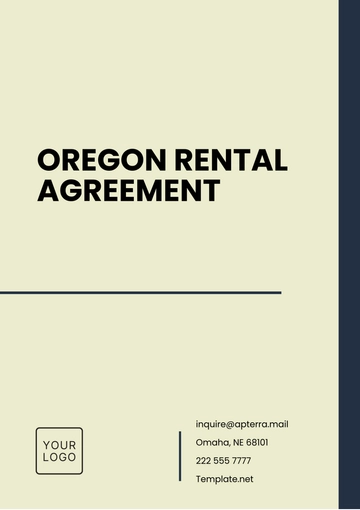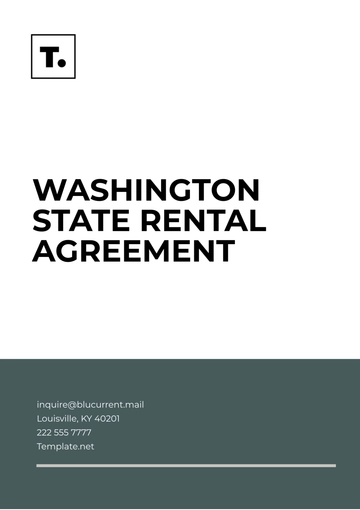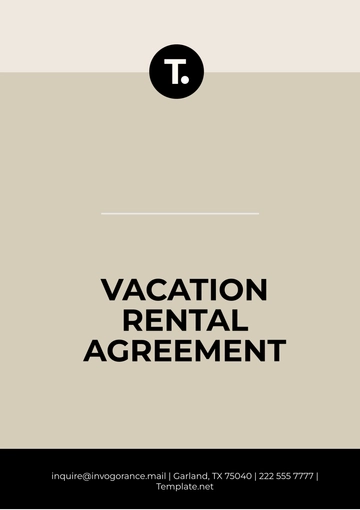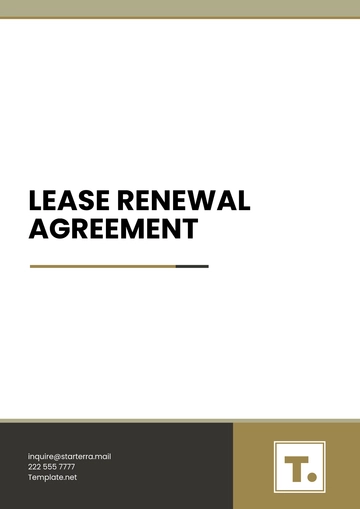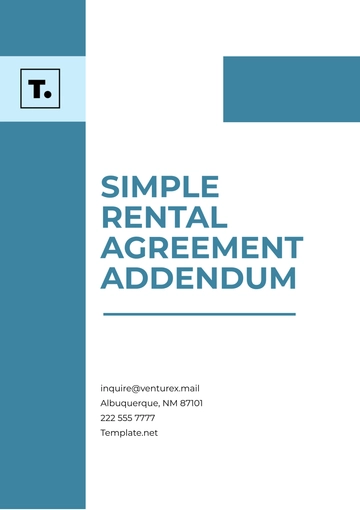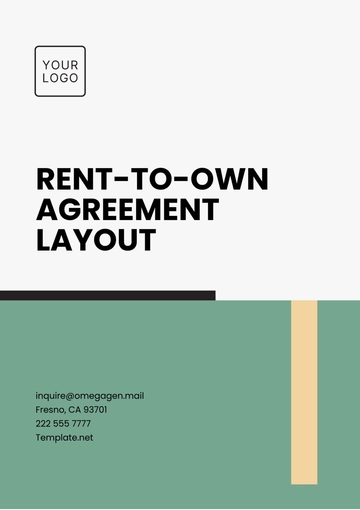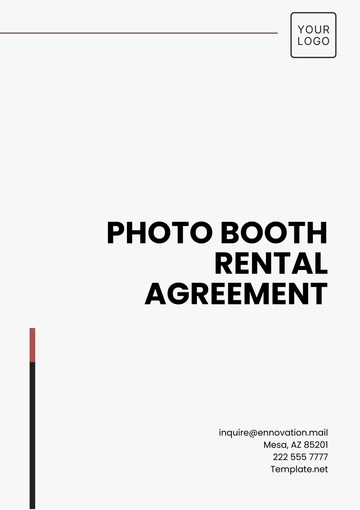Free Blank Rental Agreement
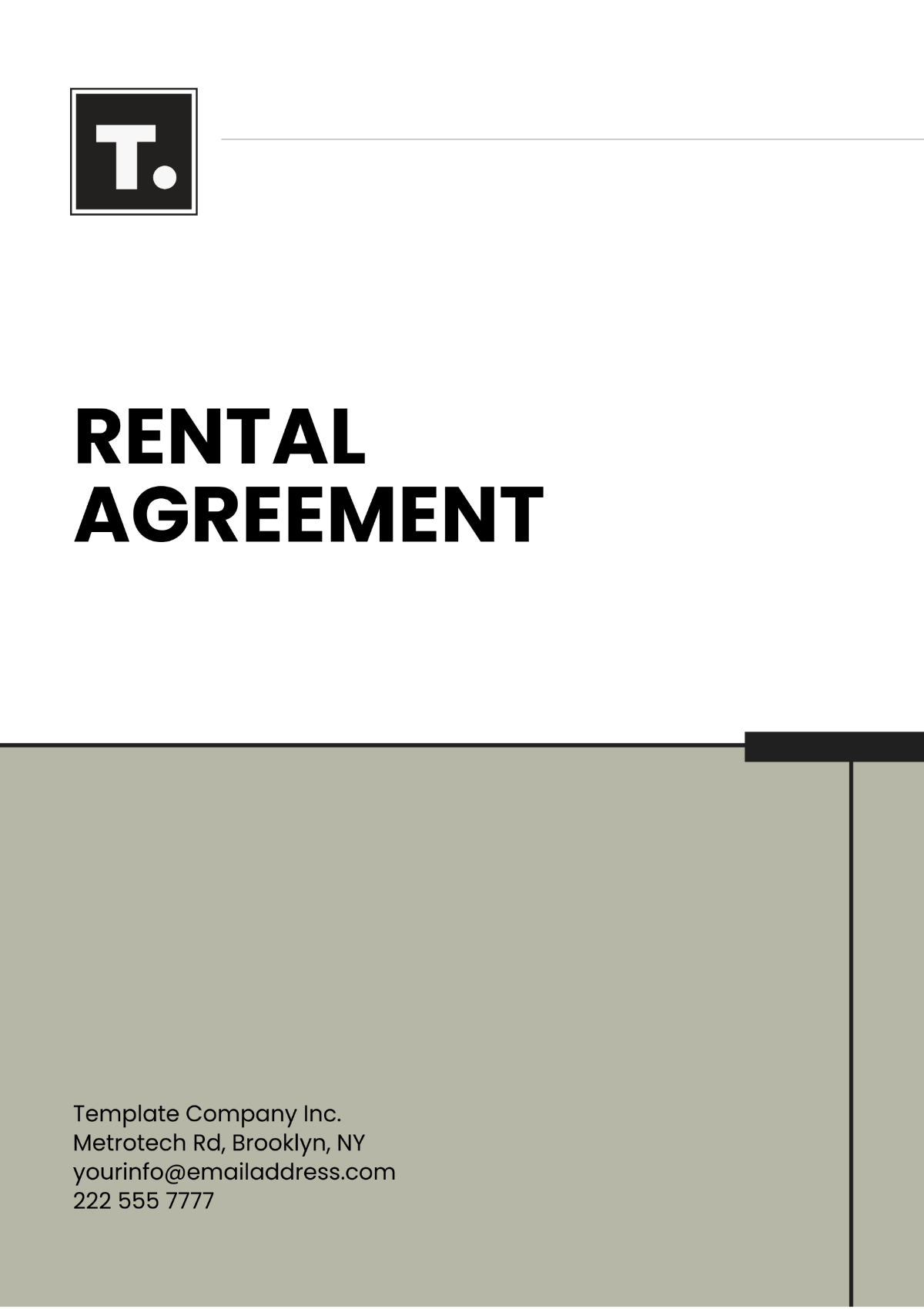
This Rental Agreement ("Agreement") is entered into this [AGREEMENT DATE], by and between [YOUR NAME], [YOUR ADDRESS] ("Landlord") and [TENANT NAME], [TENANT ADDRESS] (collectively, "Tenant").
1. PROPERTY DETAILS:
This section needs a full description of the rental property, like its address, unit number (if applicable), size, and number of rooms. Any major features or amenities, like renovations, a pool, garden, or parking lot, should be mentioned. This detailed overview helps prospective tenants understand the property.
Address: [PROPERTY ADDRESS]
Unit Number (if applicable): [PROPERTY UNIT NUMBER]
Size (Square Footage): [PROPERTY SIZE]
Number of Bedrooms: [NUMBER OF BEDROOM]
Number of Bathrooms: [NUMBER OF BATHROOM]
Features and Amenities:
Appliances: [LIST OF APPLIANCES]
Parking Spaces: [PARKING SPACES]
Storage Units: [STORAGE UNITS]
Additional Amenities: [LIST OF ADDITIONAL AMENITIES]
2. TERMS
It is essential to articulate the precise timeline encompassed by the lease agreement, including both the specific start date and the exact end date, clearly and comprehensively. Detail the type of lease agreement that it is, specifying whether it is a fixed-term lease, such as a [LEASE TERM], or perhaps a more flexible month-to-month lease. Additionally, it is also important to include any specific provisions that pertain to the potential renewal or conclusion of the lease agreement.
3. RENT AMOUNT AND PAYMENT TERMS
3.1 Monthly Rent Amount and Payment Terms:
The monthly rent amount for the property is [MONTHLY RENT], payable on the 1st of each month. Rent payments are to be made via electronic transfer or check. Late payments will incur a penalty of $50 per day until the outstanding rent is settled.
3.2 Security Deposit:
A security deposit equivalent to one month's rent ([MONTHLY RENT]) is required upon signing the lease agreement. This deposit will be held as security against damages to the property or any unpaid rent. The security deposit will be returned to the tenant within 30 days of the end of the lease term, provided that the property is left in good condition, with normal wear and tear excepted, and all rent payments are up to date. Deductions may be made from the security deposit for any damages beyond normal wear and tear or outstanding rent owed. An itemized list of deductions, if any, will be provided to the tenant upon request.
4. REPAIR AND MAINTENANCE
Outline the responsibilities of both the landlord and tenant regarding property maintenance and repairs. Specify which party is responsible for routine maintenance tasks (e.g., lawn care, snow removal) and repairs for damages caused by normal wear and tear versus tenant negligence. Include procedures for submitting maintenance requests and resolving disputes related to repairs.
4.1 Landlord Responsibilities:
4.1.1 Providing Habitability: The landlord is responsible for ensuring that the rental property meets basic habitability standards, including structural integrity, weatherproofing, and compliance with health and safety codes.
4.1.2 Routine Maintenance: The landlord typically handles routine maintenance tasks such as lawn care, snow removal, and servicing of major systems like HVAC, plumbing, and electrical.
4.1.3 Repairs due to Normal Wear and Tear: Landlords are responsible for repairing damages caused by normal wear and tear, including aging of the property or natural deterioration of its components over time.
4.1.4 Timely Repairs: Landlords must respond promptly to repair requests to maintain the habitability of the property.
4.1.5 Maintaining Common Areas: If applicable, landlords are responsible for maintaining common areas in multi-unit properties, such as hallways, staircases, and shared facilities.
4.2 Tenant Responsibilities:
4.2.1 Maintaining Cleanliness and Care: Tenants are responsible for maintaining cleanliness and care of the rental property, including routine cleaning and minor upkeep tasks.
4.2.2 Reporting Maintenance Issues: Tenants should promptly report any maintenance issues or repair needs to the landlord or property management.
4.2.3 Preventing Damage: Tenants must take reasonable care to prevent damage to the property and its fixtures. This includes avoiding activities that may cause undue wear and tear or neglect.
4.2.4 Notifying Landlord of Negligence: Tenants should inform the landlord if they notice any negligence or hazardous conditions that may require attention.
4.3 Procedures for Submitting Maintenance Requests and Resolving Disputes:
4.3.1 Maintenance Request Process: The landlord should establish a clear process for tenants to submit maintenance requests, which may include a designated phone number, email address, or online portal. Tenants should provide detailed information about the issue to expedite the repair process.
4.3.2 Timely Response: Upon receiving a maintenance request, the landlord should acknowledge receipt and promptly assess the issue. They should communicate with the tenant regarding the expected timeline for repairs.
4.3.3 Professional Repairs: Landlords should hire qualified professionals to conduct repairs beyond routine maintenance tasks, ensuring the work meets legal standards and codes.
4.3.4 Dispute Resolution: In the event of disputes regarding maintenance responsibilities or repair costs, both parties should attempt to resolve the issue amicably through communication. If necessary, mediation or arbitration may be pursued according to the terms of the lease agreement or local tenancy laws.
4.3.5 Documentation: Both landlords and tenants should keep records of maintenance requests, repair invoices, and any communication related to property maintenance to prevent misunderstandings and facilitate dispute resolution if needed.
5. INSURANCE
The tenant is responsible for having sufficient insurance to cover all personal property located on the Property. The landlord will not be responsible for any loss of the Tenant's personal property.
5.1 Tenant's Responsibility: The tenant must procure adequate insurance to safeguard personal belongings within the rented premises. This ensures protection against potential losses, as the landlord holds no liability for any damage or theft of the tenant's possessions.
5.2 Exclusion of Landlord's Liability: The landlord explicitly disclaims any responsibility for losses incurred by the tenant's personal property. Consequently, it is incumbent upon the tenant to secure comprehensive insurance coverage to mitigate potential risks and ensure financial protection in case of unforeseen circumstances.
5.3 Importance of Coverage: Given the landlord's lack of liability for the tenant's belongings, securing appropriate insurance coverage becomes paramount. This emphasizes the necessity for tenants to prioritize insurance to safeguard their personal property and mitigate potential financial losses in the event of damage or theft.
6. PETS POLICY
Pets will not be permitted to be present on the property unless there has been written consent given beforehand, and confirmed by the landlord.
6.1 Permission Required: Prior written consent from the landlord is mandatory
before bringing any pets onto the property. This consent must be confirmed and documented to ensure compliance with the pet policy.
6.2 Do's:
Ensure that pets are well-behaved and do not disturb neighbors or cause damage to the property.
Keep pets clean, vaccinated, and properly cared for to maintain a healthy living environment.
6.3 Don'ts:
Do not bring pets onto the property without obtaining formal permission from the landlord.
Avoid allowing pets to cause any damage to the property or disturb other tenants, as this may result in consequences outlined in the lease agreement.
7. DEFAULT
Should the Tenant breach any major terms of this Agreement, or any existing rules related to the Property, the Landlord has the right to end this Agreement after giving the Tenant appropriate notice.
8. TERMINATION
Upon termination of this Agreement, Tenant will return the Property and all property of Landlord in a clean and good condition.
8.1 Property Return: At the end of the agreement, the tenant is obligated to return the property to the landlord in a condition that meets the agreed-upon standards of cleanliness and maintenance.
8.2 Asset Accountability: All belongings owned by the landlord must be handed back along with the property, ensuring accountability for any items provided during the tenancy period.
8.3 Condition Assurance: The termination clause underscores the importance of leaving the property in a satisfactory state, preserving the integrity of the landlord's assets for future use or occupancy.
9. INDEMNIFICATION
Tenant will indemnify and hold Landlord harmless from all liabilities, damages, costs, or expenses arising from any act or omission of Tenant or Tenant's guests.
9.1 Scope of Indemnification: This clause outlines that the tenant assumes responsibility for any harm, costs, or legal liabilities resulting from their actions or the actions of their guests during the tenancy.
9.2 Financial Protection for Landlord: By agreeing to indemnify the landlord, the tenant ensures that the landlord is financially protected from any potential losses or damages incurred due to the tenant's actions or negligence.
9.3 Legal Safeguarding: Indemnification serves as a legal safeguard, ensuring that the landlord is not held liable for any consequences arising from the tenant's activities on the premises, thereby mitigating financial and legal risks.
By their execution below, the parties have agreed to all terms of this Agreement on the date first above written.

[YOUR NAME]
[DATE SIGNED]

[TENANT NAME]
[DATE SIGNED]
- 100% Customizable, free editor
- Access 1 Million+ Templates, photo’s & graphics
- Download or share as a template
- Click and replace photos, graphics, text, backgrounds
- Resize, crop, AI write & more
- Access advanced editor
Enhance and Discover the Rental Agreement Template from Template.net: Your ultimate solution for hassle-free leasing arrangements. This editable and customizable template ensures seamless agreements tailored to your needs. Crafted for convenience, it's easily editable in our Ai Editor Tool, offering efficiency and precision in every detail. Simplify your leasing process today!
You may also like
- Lease Agreement
- Non Compete Agreement
- Rental Agreement
- Prenuptial Agreement
- Non Disclosure Agreement
- Operating Agreement
- Hold Harmless Agreement
- LLC Operating Agreement
- Arbitration Agreement
- Purchase Agreement
- Residential Lease Agreement
- Executive Agreement
- Confidentiality Agreement
- Contractor Agreement
- Partnership Agreement
- Postnuptial Agreement
- Collective Bargaining Agreement
- Loan Agreement
- Roommate Agreement
- Commercial Lease Agreement
- Separation Agreement
- Cohabitation Agreement
- Room Rental Agreement
- Child Custody Agreement
- Employee Agreement
- License Agreements
- Settlement Agreement
- Joint Venture Agreement
- Indemnity Agreement
- Subordination Agreement
- Sales Agreement
- Agreements Between Two Parties
- Business Agreement
- Real Estate Agreement
- HR Agreement
- Service Agreement
- Property Agreement
- Agreement Letter
- Restaurant Agreement
- Construction Agreement
- Finance Agreement
- Marketing Agreement
- Payment Agreement
- Investment Agreement
- Management Agreement
- Nonprofit Agreement
- Software Agreement
- Startup Agreement
- Agency Agreement
- Copyright Agreement
- Collaboration Agreement
- Reseller Agreement
- Car Rental Agreement
- Cleaning Services Agreement
- Consultant Agreement
- Deed Agreement
- Car Agreement
- Equipment Agreement
- Shares Agreement
- Data Sharing Agreement
- Advertising Agreement
- School Agreement
- Franchise Agreement
- Event Agreement
- Travel Agency Agreement
- Vehicle Agreement
- Board Resolution Agreement
- Land Agreement
- Binding Agreement
- Tenancy Agreement
- Exclusive Agreement
- Development Agreement
- Assignment Agreement
- Design Agreement
- Equity Agreement
- Mortgage Agreement
- Purchase and Sale Agreement
- Shareholder Agreement
- Vendor Agreement
- Royalty Agreement
- Vehicle Lease Agreement
- Hotel Agreement
- Tenant Agreement
- Artist Agreement
- Commission Agreement
- Consignment Agreement
- Debt Agreement
- Recruitment Agreement
- Training Agreement
- Transfer Agreement
- Apprenticeship Agreement
- IT and Software Agreement
- Referral Agreement
- Resolution Agreement
- Waiver Agreement
- Consent Agreement
- Partner Agreement
- Social Media Agreement
- Customer Agreement
- Credit Agreement
- Supply Agreement
- Agent Agreement
- Brand Agreement
- Law Firm Agreement
- Maintenance Agreement
- Mutual Agreement
- Retail Agreement
- Deposit Agreement
- Land Purchase Agreement
- Nursing Home Agreement
- Supplier Agreement
- Buy Sell Agreement
- Child Support Agreement
- Landlord Agreement
- Payment Plan Agreement
- Release Agreement
- Research Agreement
- Sponsorship Agreement
- Buyout Agreement
- Equipment Rental Agreement
- Farm Agreement
- Manufacturing Agreement
- Strategic Agreement
- Termination of Lease Agreement
- Compliance Agreement
- Family Agreement
- Interior Design Agreement
- Ownership Agreement
- Residential Lease Agreement
- Retainer Agreement
- Trade Agreement
- University Agreement
- Broker Agreement
- Dissolution Agreement
- Funding Agreement
- Hosting Agreement
- Investor Agreement
- Memorandum of Agreement
- Advisory Agreement
- Affiliate Agreement
- Freelancer Agreement
- Grant Agreement
- Master Service Agreement
- Parking Agreement
- Subscription Agreement
- Trust Agreement
- Cancellation Agreement
- Horse Agreement
- Influencer Agreement
- Membership Agreement
- Vacation Rental Agreement
- Wholesale Agreement
- Author Agreement
- Distributor Agreement
- Exchange Agreement
- Food Agreement
- Guarantee Agreement
- Installment Agreement
- Internship Agreement
- Music Agreement
- Severance Agreement
- Software Development Agreement
- Storage Agreement
- Facility Agreement
- Intercompany Agreement
- Lending Agreement
- Lodger Agreement
- Outsourcing Services Agreement
- Usage Agreement
- Assurance Agreement
- Photography Agreement
- Profit Sharing Agreement
- Relationship Agreement
- Rent To Own Agreement
- Repayment Agreement
- Volunteer Agreement
- Co Parenting Agreement
- HVAC Agreement
- Lawn Care Agreement
- SAAS Agreement
- Work from Home Agreement
- Coaching Agreement
- Protection Agreement
- Security Agreement
- Repair Agreement
- Agreements License
